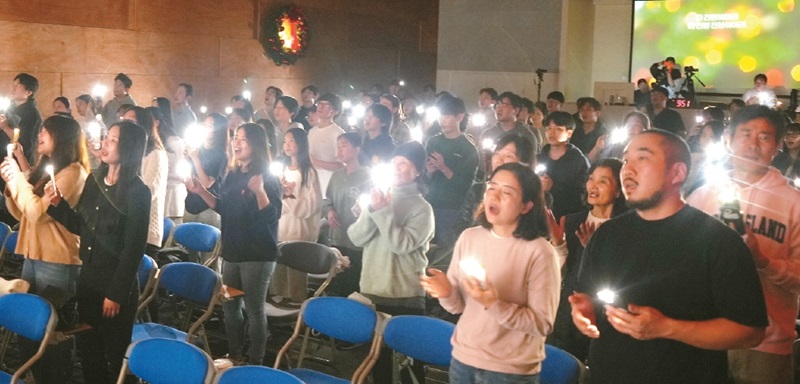In Los Angeles and throughout Southern California, a generational shift in pastoral leadership is unfolding across Korean-American churches. As the founding pastors of both large and small congregations step down, younger pastors in their 40s are stepping into leadership roles. This transition is accelerating as it coincides with the retirement of first-generation pastors who have played a pivotal role in shaping the Korean immigrant church community.
According to the Korean-American church community, several churches—including Sa-Rang Community Church, Glory Church of Jesus Christ, Mijoo Peace Church, Junimseun Church, Lord’s Light Community Church, Bethany Church, and Inland Church—are currently in the process of appointing new pastors or have recently selected new pastors-in-charge.
Glory Church of Jesus Christ, one of the major Korean-American churches in Los Angeles, recently appointed its senior associate pastor, 46-year-old Pastor Inchan Kim, as co-pastor-in-charge on January 22. This appointment positions him as the successor to the current pastor in charge, Rev. Seunghoon Shin.
Similarly, Junimseun Church in Torrance has named 49-year-old Pastor Yonghwan Shin as its new pastor-in-charge, effective this March.

Pastor Sungkyu Park, 69, who is set to retire, emphasized the necessity of having a younger pastor lead the church. “The consensus was that we needed a pastor with strong spirituality and gospel-centered preaching. More importantly, the congregation recognized that for the church’s future, we needed a pastor who could collaborate with neighboring churches and effectively minister to younger members,” he said.
Sa-Rang Community Church, a leading Korean-American church in Orange County, is also in the midst of a pastoral search. Given the church’s strong focus on next-generation worship services for Korean-American second-generation congregants, bilingual proficiency is considered a key qualification. The selection process for their new senior pastor is nearing completion.
Meanwhile, Mijoo Peace Church, located in LA’s Koreatown and celebrating its 50th anniversary this year, held a congregational vote on February 2 to decide its next pastor-in-charge. The leading candidate is a 47-year-old pastor. The church began its pastoral search last year, receiving applications from 43 pastors, the majority of whom were under 50 years old.
This generational leadership transition is not limited to large churches with congregations of over 2,000 members; mid-sized and smaller churches are also undergoing leadership changes. As Korean-American immigrant churches face aging congregations and widening generational and cultural gaps, there is a growing preference for pastors who can bridge these divides and connect with both older and younger members.
The emergence of pastoral leaders in their 40s presents both opportunities and challenges for the Korean-American church community. One of the most pressing issues is the decline in Korean immigration, which has significantly reduced the number of new churchgoers.
According to the Department of Homeland Security, the number of Korean immigrants to the U.S., which exceeded 20,000 annually in the early 2010s, dropped to fewer than 10,000 in 2022. This demographic shift has made it increasingly difficult for Korean-American churches to sustain their traditional immigrant-driven growth model.
Internally, churches are also struggling. Many younger Korean Americans are leaving the church. Research from the Barna Group indicates that 45% of second-generation Korean Americans stop attending church after graduating high school. Financial challenges also threaten the sustainability of many congregations. In particular, the shift to online worship during the COVID-19 pandemic led to a sharp decline in offerings.
Against this backdrop, there is great hope that younger pastors will bring a more practical and efficient approach to church leadership while helping to close the generational gap. However, concerns remain. Leadership transitions have sometimes led to tensions between pastors and church elders, resulting in church divisions and even legal disputes in some cases.
The transformation of leadership in Korean-American churches must go beyond a simple generational shift; it should serve as an opportunity to reinforce the identity and mission of the Korean immigrant church. For these transitions to be successful, congregations must embrace change with open minds and make wise, collective decisions.
By Yeol Jang [jang.yeol@koreadaily.com]





